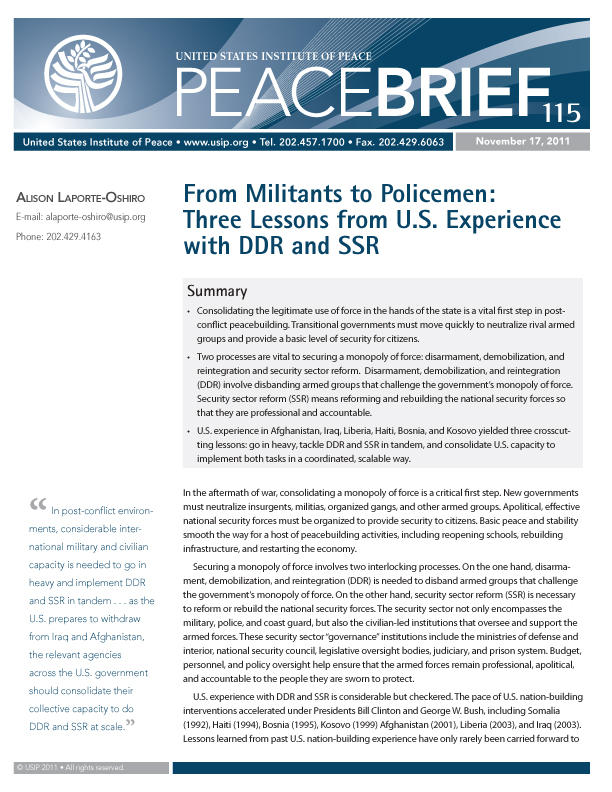Consolidating the legitimate use of force in the hands of the state is a vital first step in post-conflict peacebuilding. This USIP Peace Brief analyzes two processes that are vital to securing a monopoly of force: disarmament, demobilization, and reintegration (DDR) and security sector reform (SSR).

Summary
- Consolidating the legitimate use of force in the hands of the state is a vital first step in post-conflict peacebuilding. Transitional governments must move quickly to neutralize rival armed groups and provide a basic level of security for citizens.
- Two processes are vital to securing a monopoly of force: disarmament, demobilization, and reintegration and security sector reform. Disarmament, demobilization, and reintegration (DDR) involve disbanding armed groups that challenge the government’s monopoly of force. Security sector reform (SSR) means reforming and rebuilding the national security forces so that they are professional and accountable.
- U.S. experience in Afghanistan, Iraq, Liberia, Haiti, Bosnia, and Kosovo yielded three crosscutting lessons: go in heavy, tackle DDR and SSR in tandem, and consolidate U.S. capacity to implement both tasks in a coordinated, scalable way.
About This Brief
This report is based on the panel presentation and the views expressed at a September 12, 2011 meeting of the Security Sector Reform working group. The panel included retired Ambassador James Dobbins, RAND Corp., retired Lt. Gen. David Barno, Center for New American Security, retired Ambassador John Blaney, Deloitte Consulting LLP and Melanne Civic, the Center for Complex Operations. Robert Perito, the Director of USIP’s Security Sector Governance Center, moderated the panel.
The event introduced "Monopoly of Force: the Nexus of DDR and SSR," a compilation of essays by experts and practitioners published by NDU Press that grew out of a March 2010 conference organized by USIP and the Center for Complex Operations.
Laporte-Oshiro is a program assistant in the Security Sector Governance Center at USIP. The Center focuses on developing security forces and supervising institutions that are effective and apolitical.